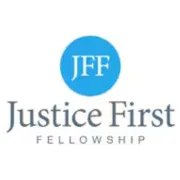
Justice First Fellowship Trainee Solicitors - April 2026 onwards - various employers
Application deadline: 28.11.25
A legal career in social justice offers you the opportunity to break new ground in some of the most important and challenging areas of law.
It’s your opportunity to make a tangible difference in people’s lives, working with communities to shape the law to protect and enhance their rights.
The fellowship is your route to becoming a qualified social justice lawyer.
We are committed to supporting the next generation of social justice lawyers by:
- Creating a holistic opportunity for you to train and qualify in social justice law
- Helping you to gain and manage secure, effective and long-term careers in the sector
- Supporting you to be part of a movement of lawyers and communities who use the law to tackle injustice.
Our fellow recruitment for 2026 is open now, and successful fellows are asked to start work at their host organisation in April 2026 for a period of two years.
On the application form you will find details of the 15 host organisations and the roles they are offering. Previous fellows have trained at 74 different host organisations from across the UK, including law centres and national charities.
On the application form, you can choose two organisations that you would like to work for from the list of hosts. These organisations will provide a full job description to help you decide and receive anonymised applications to reduce bias when shortlisting.
You will receive an automatic submission confirmation to your email address and be notified by us if you have been shortlisted for an interview by the end of January 2026.
Shortlisting
If shortlisted, you will be contacted by the host directly to arrange an interview. This may be online or in person. The final decision on who to employ is theirs, unless you receive more than one offer. They will contact you directly to let you know the outcome of your interview by the middle of February.
If successful, you will be employed by the host, who will be responsible for supervising and supporting you. The wider support, training and opportunities component of the scheme are organised by the Legal Education Foundation and its partners.
If you are not successful at the interview, and you opted into clearing when you submitted your application, you could still be considered for positions that remain available at other hosts. However, this is not guaranteed.
Selection
Each host will receive your application if you choose their organisation. Hosts do not see your name, school information or equal opportunities data at this first stage so that the shortlisting process is anonymised and as unbiased as possible.
If you are invited to interview, the hosts will gain full access to your application and may ask you for further information, such as your CV.
Usually interviews include a presentation and / or a written task which you will be told about and asked to prepare in advance. Someone from LEF may also sit on your interview panel as an observer.
In general, hosts are looking for people with the following experience and qualities:
- A demonstrable passion for access to justice
- Experience working with marginalised communities
- Desire to create change in the legal community
- Lived or learned experience of the issues facing the communities they serve.
Timeline
Fellowship applications open: w/c 13 October 2025
Fellowship applications close : 28 November 2025
Interview period: 19 January – 6 February 2026
Fellowships commence: April 2026
Eligiblity
You must:
- Have a relevant qualification.
England and Wales: complete and pass the Legal Practice Course (LPC) by 14 March 2026, or have an undergraduate degree and complete and pass SQE Part 1 by 14 March 2026.
Scotland: complete and pass the Diploma in Legal Practice/Professional Legal Practice (DLP/DPLP) by 14 March 2026.
Northern Ireland: have an undergraduate law degree, and be admitted by March 2026 to the solicitors apprenticeship scheme at the Institute of Professional Legal Studies (Queen’s University Belfast) commencing in September 2026. - Have the right to work in the UK.
- Be willing and able to commit to working for two years as a fellow from April 2026.
- Demonstrate a commitment to social justice, this can include voluntary work or lived experience.
Select apply to find out where across the UK our fellowships are located and apply.
Practice area
- Immigration law
- Asylum law
- Housing law
- Family law
- Employment law
- Public law
- Constitutional and Administrative Law
- Human rights and equality legislation
Required degree level
- Law degree/GDL/CILEX level 6 or equivalent
- Non-law degree
- LPC/BPTC
- Passed SQE 1
Salary range
- £1-£29,999